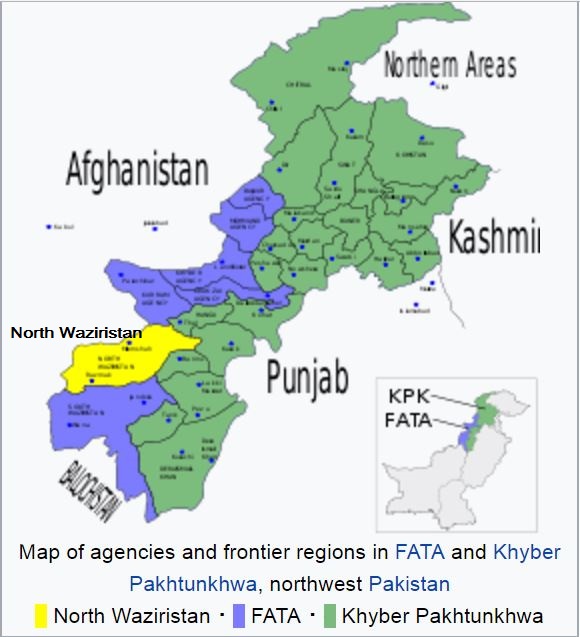Why in news?
Recently Inter Services Public Relations, media wing of the Pakistan Armed Forces, announced the launch of Operation Radd-ul-Fasaad against terrorists across the country.
What is Radd-ul-Fasaad?
- The latest in a string of Pakistani counter-terrorism operations, directed at dismantling jihadist infrastructure within the country.
- It marks an official acceptance of the well-known fact that terrorists are active in Northern Sindh and Punjab, and that there’s a need to act against them if terrorism in the country is to be defeated.
How is it different in tactically from the earlier operation, Zarb-e-Azb?
- Zarb-e-Azb focussed on massive force operations against the Tehreek-e-Taliban Pakistan and other jihadist groups in one region, North Waziristan (Federally Administered Tribal Areas) following the attack on Karachi’s Jinnah International Airport in June 2014.
- Radd-ul-Fasaad is nationwide, and doesn’t seem to involve conventional military operations.
- Zarb-e-Azb has not been called off officially yet.
- But the Pak Army claims it has eliminated terrorists from all but a tiny sliver of North Waziristan.

How successful was Zarb-e-Azb?
- It’s hard to say since the only source of information is the Pak Army, which claims several thousand terrorists have been killed.
- In strategic terms, though, it’s clearly been a failure, as the TTP and other terror groups are relocating their infrastructure across the border into Afghanistan.
Where is the operation Radd-ul-Fasaad headed?
- A key test will be whether the Army or government actually goes after key pro-jihadist seminaries and institutions — a stated objective of the National Action Plan against terrorism.
- If that continues, there’s unlikely to be major success.
What are the major terror attacks in Pakistan in 2017?
- Parachinar - Blast in a market in the Shia-dominated administrative HQ of Kurram Agency in FATA. The Sunni terrorist Lashkar-e-Jhangvi and TTP made claims of responsibility.
- Lahore - A suicide bombing at a protest by pharmacists on the city’s Mall Road. The Jamaat-ul-Ahrar faction of the Pakistan Taliban claimed responsibility.
- Sehwan - Suicide bombing of the shrine of Lal Shahbaz Qalandar in Sindh’s Jamshoro district. The Islamic State-Khorasan Province claimed responsibility.
- Charsadda - Suicide bombing in a sessions court in Tangi in Khyber Pakhtunkhwa’s Charsadda district. The Jamaat-ul-Ahrar claimed responsibility.